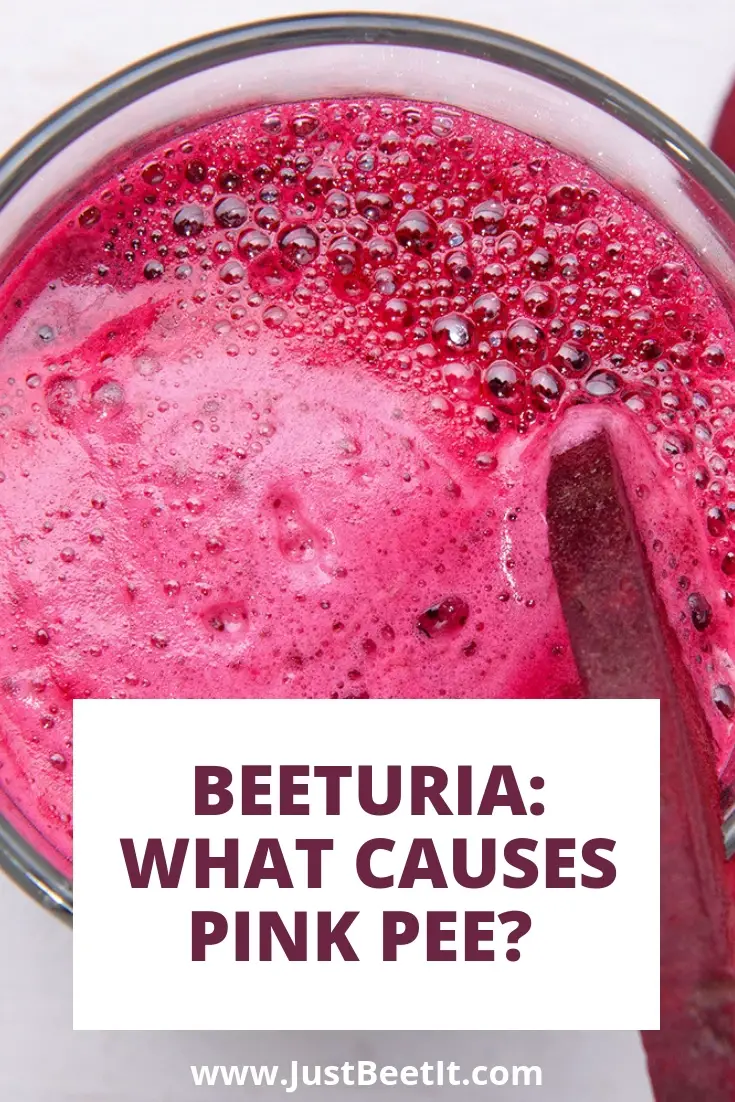Does Beetroot Cause Acidity?
[su_note note_color=”#fb8e00″ text_color=”#000000″ radius=”12″]
Beetroot, a vibrant and nutritious vegetable, has sparked curiosity among individuals who are concerned about its impact on acidity. Many people wonder if consuming beetroot can trigger an increase in stomach acid, leading to symptoms of acidity such as heartburn and indigestion.
It is important to address these concerns and understand the potential effects of beetroot on digestive health. By examining the properties of beetroot and its impact on stomach acid levels, we can shed light on whether beetroot causes acidity or if it is a misconception. Let’s delve into this topic and explore the relationship between beetroot and acidity.
[su_box title=”
[/su_box]

Understanding Acidity and Its Causes
1. Definition of Acidity
Acidity refers to the condition of having excessive acid levels in the stomach. This can lead to symptoms such as heartburn, indigestion, and acid reflux. It occurs when the gastric glands in the stomach produce an excessive amount of hydrochloric acid.
2. Causes of Acidity
There are several factors that can contribute to the development of acidity:
- Dietary Choices: Certain foods and beverages can trigger the production of stomach acid. These include spicy foods, citrus fruits, tomatoes, coffee, and alcohol.
- Heavy Meals: Consuming large meals or eating too quickly can put pressure on the stomach, leading to the production of excess acid.
- Obesity: Being overweight or obese can increase the risk of developing acidity due to the excess pressure on the stomach.
- Smoking: Smoking cigarettes can weaken the lower esophageal sphincter, a muscle that helps prevent stomach acid from flowing back into the esophagus. This can lead to acidity.
- Medical Conditions: Certain medical conditions, such as gastroesophageal reflux disease (GERD), hiatal hernia, and peptic ulcers, can contribute to the development of acidity.
- Stress: Chronic stress can affect the digestive system and increase the production of stomach acid.
Whilst beetroot is generally considered a healthy vegetable with various nutritional benefits, there is limited scientific evidence to suggest that it directly causes acidity. Notwithstanding, individual reactions to beetroot may vary, and some people may experience acidity symptoms after consuming it. If you notice any discomfort or symptoms of acidity after eating beetroot, it is advisable to consult a healthcare professional for a proper evaluation.
[su_highlight background=”#f6b40f”]Expert Tips: Avoid trigger foods and beverages, eat smaller meals, manage stress, and seek medical advice for persistent acidity symptoms.[/su_highlight]
Debunking the Myth: Does Beetroot Cause Acidity?
1. Nutritional Composition of Beetroot
Before discussing whether beetroot causes acidity or not, let’s first examine its nutritional composition. Beetroot is a root vegetable that is packed with essential vitamins and minerals. It contains nutrients such as folate, vitamin C, potassium, and iron. Additionally, beetroot is also a great source of dietary fiber.
2. Effects of Beetroot on Stomach Acid
Contrary to popular belief, consuming beetroot does not result in an increase in stomach acid. In fact, beetroot has alkaline properties that can help balance the pH level in the digestive system and neutralize excess stomach acid.
Beetroot contains a compound called betaine, which has been shown to improve stomach acid production and support healthy digestion. This can be particularly beneficial for individuals with low stomach acid levels, as it aids in the breakdown and absorption of nutrients.
Furthermore, the high fiber content in beetroot can promote regular bowel movements and prevent constipation, which are often associated with acidity and indigestion.
| Key Points: |
|---|
| Beetroot is a root vegetable that is rich in essential vitamins, minerals, and dietary fiber. |
| Consuming beetroot does not increase stomach acid. |
| Beetroot has alkaline properties that can neutralize excess stomach acid. |
| The betaine content in beetroot supports healthy digestion and aids in nutrient absorption. |
| Beetroot’s high fiber content promotes regular bowel movements and prevents constipation. |
Benefits of Consuming Beetroot
1. Rich in Antioxidants
Beetroot is packed with antioxidants, which help protect the body against free radicals. Free radicals can cause damage to cells and contribute to the development of chronic diseases like cancer and heart disease. Consuming beetroot increases your intake of antioxidants, such as betalains, which have strong antioxidant properties.
2. Promotes Digestion
Beetroot is a good source of dietary fiber, which plays a crucial role in maintaining a healthy digestive system. Fiber adds bulk to the stool, preventing constipation and promoting regular bowel movements. Additionally, fiber helps nourish beneficial gut bacteria, which are essential for optimal digestion and nutrient absorption.
3. Supports Liver Health
The liver is responsible for detoxifying the body and metabolizing various compounds. Consuming beetroot supports liver health due to its high content of betaine, a natural compound that helps protect liver cells and promote their regeneration. Betaine has hepatoprotective effects, shielding the liver from damage caused by toxins and reducing the risk of liver disease.

Tips for Consuming Beetroot without Causing Acidity
1. Moderation is Key
When consuming beetroot, it’s important to do so in moderation to avoid acidity. At the same time beetroot is generally considered a healthy vegetable, consuming too much can increase stomach acid production, leading to symptoms of acidity such as heartburn and indigestion. To prevent any digestive discomfort, it is recommended to consume beetroot in moderate amounts.
2. Cooking Methods to Reduce Acidity
The way beetroot is cooked can affect its acidity levels. To minimize the chances of causing acidity, consider the following cooking methods:
- Boiling: Boiling beetroot can help reduce its acidity. This method softens the vegetable and improves digestibility.
- Steaming: Steaming beetroot is another option to reduce acidity. This gentle cooking method retains more nutrients At the same time making the vegetable less acidic.
- Grilling: If you prefer a different flavor profile, grilling beetroot can be a tasty option. This method adds a smoky flavor At the same time reducing the vegetable’s acidity.
3. Pairing Beetroot with Alkaline Foods
Combining beetroot with alkaline foods can help neutralize its acidity and promote better digestion. Consider the following pairings:
- Leafy Greens: Pair beetroot with leafy greens such as spinach or kale. These alkaline-rich vegetables can balance the acidity and provide additional nutrients.
- Citrus Fruits: Adding citrus fruits like oranges or lemons to beetroot-based salads can help counteract acidity. The high citric acid content aids in digestion.
- Avocado: Incorporating avocado into beetroot recipes can contribute to reducing acidity. Avocado is known for its alkaline properties and can help neutralize stomach acid.
| Information |
|---|
| Beetroot is a healthy vegetable, but excessive intake can cause acidity. |
| Boiling, steaming, or grilling beetroot can reduce its acidity levels. |
| Pairing beetroot with alkaline foods like leafy greens, citrus fruits, or avocado can help neutralize its acidity. |
[su_note note_color=”#ea2e0c” text_color=”#ffffff” radius=”8″]Extra Tips: Consume beetroot in moderation, try boiling, steaming, or grilling, and pair with alkaline foods to prevent acidity.[/su_note]
Does Beetroot Cause Acidity?
Beetroot is a popular vegetable known for its vibrant color and numerous health benefits. Many people wonder if consuming beetroot can lead to acidity and related symptoms like heartburn and indigestion. Let’s explore this topic further and understand what factors contribute to acidity.
1. Stress and Lifestyle Habits
Stress and unhealthy lifestyle habits can play a significant role in causing acidity. When we’re stressed, our body produces more cortisol, a stress hormone that increases stomach acid production. Additionally, irregular eating patterns, overeating, consuming spicy or fatty foods, and excessive alcohol or caffeine intake can also trigger acidity.
2. Certain Medical Conditions
Acidity can also be caused by certain medical conditions. Conditions like gastroesophageal reflux disease (GERD), hiatal hernia, gastritis, and peptic ulcers can increase stomach acid and result in acidity symptoms. If you have any of these conditions, it’s advisable to consult a healthcare professional for proper diagnosis and management.
As for beetroot, there is no scientific evidence to suggest that it directly causes acidity. In fact, beetroot is often recommended for its alkalizing properties, which can help neutralize stomach acid. Although, individual tolerance may vary, and some people may experience acidity or heartburn after consuming beetroot due to their specific digestive system or other factors.
It’s important to listen to your body and pay attention to how it reacts to different foods. If you notice any discomfort or symptoms of acidity after consuming beetroot, you can try incorporating it in smaller quantities or consult a healthcare professional for personalized advice.
Conclusion
Consuming beetroot does not cause acidity or increase stomach acid levels. There is no scientific evidence to suggest that beetroot consumption leads to symptoms of acidity such as heartburn or indigestion.
In fact, beetroot is known for its numerous health benefits, including its rich nutrient content and potential to lower blood pressure. If you enjoy beetroot, you can continue to incorporate it into your diet without worrying about acidity-related issues. Notwithstanding, if you experience persistent acidity symptoms, it is advisable to consult a healthcare professional for proper diagnosis and treatment.
Faq about Beetroot and Acidity
FAQ 1: Can beetroot worsen existing acidity?
No, beetroot does not worsen existing acidity. In fact, beetroot is known to have alkaline properties that can help neutralize stomach acid and reduce acidity symptoms.
FAQ 2: Are there any side effects of consuming beetroot?
During beetroot is generally safe for consumption, some individuals may experience side effects such as red or pink urine, stomach upset, or low blood pressure. It is advisable to consume beetroot in moderation and consult a healthcare professional if you have any concerns.
FAQ 3: How much beetroot should I consume to avoid acidity?
There is no specific recommended amount of beetroot to avoid acidity. Conversely, it is generally recommended to consume beetroot in moderation as part of a balanced diet. If you have a history of acidity or other digestive issues, it is best to consult with a healthcare professional for personalized advice.
FAQ 4: Can beetroot juice cause acidity?
No, beetroot juice does not cause acidity. As mentioned earlier, beetroot has alkaline properties that can help neutralize stomach acid. Conversely, excessive consumption of beetroot juice or any acidic food or drink may contribute to acidity in some individuals. It is important to maintain a balanced diet and listen to your body’s response.
FAQ 5: Are there any alternative remedies for acidity?
Yes, there are several alternative remedies for acidity that you can try. Some common remedies include chewing gum, avoiding trigger foods (such as spicy or fatty foods), eating smaller meals more frequently, and maintaining a healthy weight. It is always advisable to consult with a healthcare professional for personalized advice and to rule out any underlying health conditions.
Read Similar Post:
1. Is Daily Consumption of Carrot Beetroot Juice Safe and Beneficial? Exploring Health Benefits and Guidelines
2. The Power of Daily Carrot, Beetroot, and Cucumber Juice: Unleashing Health Benefits

